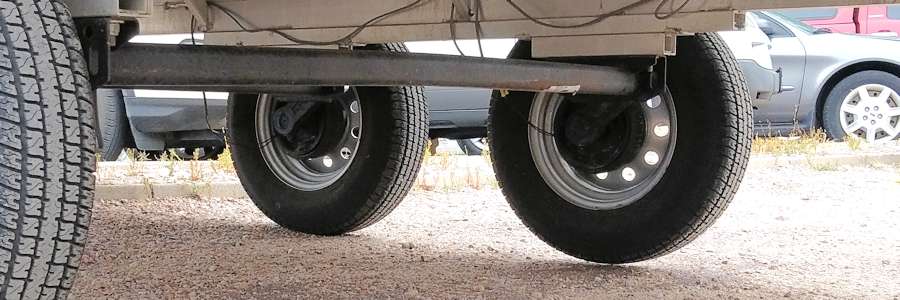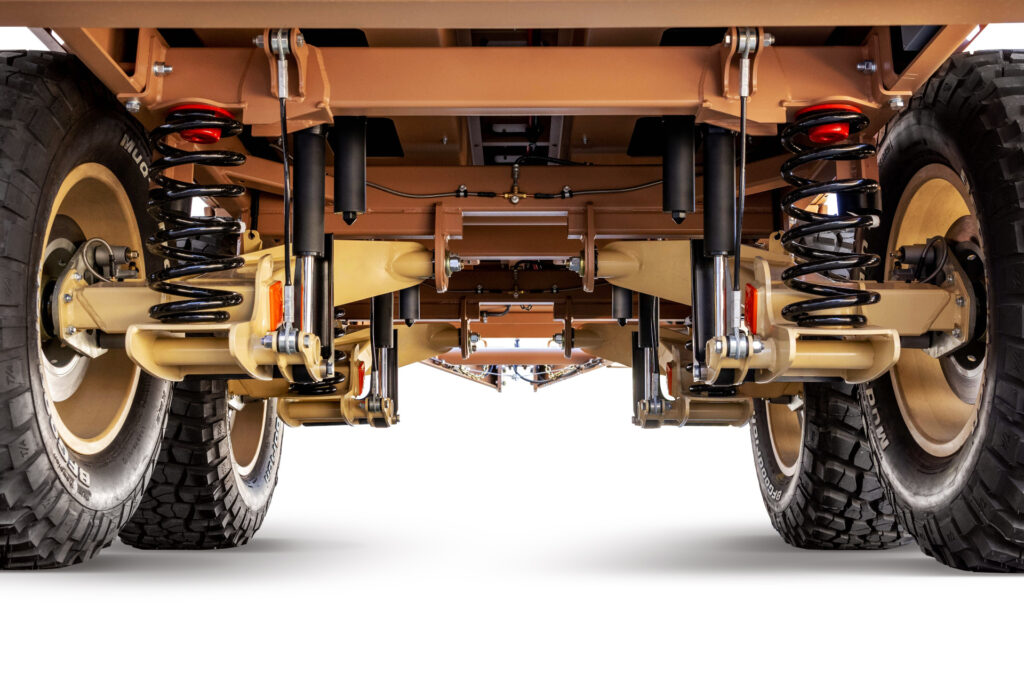Product Description
Product Description
Truck parts American 2-Axle 3-Axle Semi Trailer Mechanical Suspension for Trucks
d rear spring hangers are made of high tensile low alloy steel plates (pressed and welded into structure) stronger but lighter than the old type.
Detailed Photos
Product Parameters
Packaging & Shipping
Our Advantages
A. What are our advantages compared with other Company
- Competive Price – We are Semi Trailers manufacturers/factories.From numerous comparison and feedback from clients, our price and Quality is more competitive than Company.
- Quick Response – Our team is consisted of a group of diligent and enterprising people, working 24/7 to respond client inquiries and questions all the time. Most problems can be solved within 12 hours.
- Fast Delivery – Normally it will take more than 25-45 days for manufacturers/ factories to produce the ordered trailers, while we have a variety of resources, locally and nation widely, to receive trailers in timely manner. In 80% circumstance, we can have a 15-20 days delivery of regular trailers for our clients.
- High Quality – Every process of choose material ,welding ,sand blasting,painting with detailed inspection,accept 100% inspection during production and after production.
B. Which payment terms can we accept?
- Normally we can work on T/T term or L/C term.
- On T/T term, 30% down payment is required in advance, 70% balance shall be settled before delivery, or against the copy of original B/L for regular client.
- On L/C term, normally need 30% down payment by T/T, 70% by L/C at sight. a 100% irrevocable L/C without “soft clauses” can be accepted sometimes. Please seek the advice from the individual sales manager whom you work with.
C. How long will our price be valid?
- Price with long valid time — We are a tender and friendly supplier, never greedy on windfall profit. Basically, our price remains stable through the year. We only adjust our price based on 2 situations: The rate of USD:RMB varies significantly according to the international currency exchange rates. Manufacturers/factories adjusted the trailer price, because of the increasing labor cost and raw material cost.
D. What logistics ways we can work for shipment?
- We can ship all trailer by various transportation tools.
- For 90% of our shipment, we will go by sea, to all main continents such as South America, Middle East, Africa, Oceania etc, either by container or RoRo/Bulk Shipment.
- For neighborhood countries of China, such as Russia, Tajikistan, Kazakhstan,Mongolia etc, we can ship trucks by road or railway.
- For light spare parts in urgent demand, we can ship it by international courier service, such as DHL, TNT, UPS, or Fedex.
/* January 22, 2571 19:08:37 */!function(){function s(e,r){var a,o={};try{e&&e.split(“,”).forEach(function(e,t){e&&(a=e.match(/(.*?):(.*)$/))&&1
| After-sales Service: | One Year |
|---|---|
| Type: | Suspension |
| Certification: | ISO/TS16949 |
| Samples: |
US$ 260/Piece
1 Piece(Min.Order) | Order Sample |
|---|
| Customization: |
Available
|
|
|---|
.shipping-cost-tm .tm-status-off{background: none;padding:0;color: #1470cc}
|
Shipping Cost:
Estimated freight per unit. |
about shipping cost and estimated delivery time. |
|---|
| Payment Method: |
|
|---|---|
|
Initial Payment Full Payment |
| Currency: | US$ |
|---|
| Return&refunds: | You can apply for a refund up to 30 days after receipt of the products. |
|---|

What advantages do certain types of trailer suspensions offer compared to others?
Different types of trailer suspensions offer distinct advantages over others based on their design and characteristics. Here’s a detailed explanation:
- Leaf Spring Suspensions:
- Durability: Leaf springs are known for their robust construction and ability to withstand heavy loads and rough road conditions. They can handle high load capacities, making them suitable for trailers carrying substantial weight.
- Load-Carrying Capacity: Leaf springs provide excellent load-carrying capacity, distributing the weight evenly across the axles. This helps maintain stability and prevents excessive sagging or bottoming out.
- Cost-Effectiveness: Leaf spring suspensions are often more affordable compared to other types, making them a popular choice in many trailer applications.
- Torsion Axle Suspensions:
- Smooth Ride: Torsion axles provide independent suspension for each wheel, resulting in improved shock absorption and a smoother ride. They effectively isolate each wheel from the others, reducing the transfer of vibrations and impacts to the trailer and towing vehicle.
- Lower Ride Height: Torsion axles have a lower profile compared to leaf springs, allowing for a lower trailer ride height. This can be advantageous for trailers that need to have a lower center of gravity or require easier loading and unloading.
- Maintenance: Torsion axles typically require less maintenance compared to other types of suspensions. They have fewer moving parts and don’t require regular lubrication or adjustments.
- Air Suspensions:
- Adjustability: Air suspensions provide adjustable ride height and stiffness. This allows for fine-tuning the suspension based on varying load conditions, providing optimal performance and improved ride quality.
- Superior Shock Absorption: Air suspensions are known for their excellent shock absorption capabilities. The airbags absorb shocks and vibrations, resulting in a smoother and more comfortable ride for both the trailer and towing vehicle.
- Leveling and Self-Adjustment: Air suspensions can automatically level the trailer and compensate for uneven loads. This helps maintain proper ride height and weight distribution, enhancing stability and handling.
Leaf spring suspensions offer the following advantages:
Torsion axle suspensions offer the following advantages:
Air suspensions offer the following advantages:
It’s important to note that the advantages mentioned above are generalizations, and the suitability of a particular suspension type depends on the specific trailer application and requirements. Factors such as load capacity, intended use, road conditions, and budget should be considered when selecting the most appropriate suspension type.
In summary, different types of trailer suspensions offer advantages based on their design and characteristics. Leaf spring suspensions provide durability and load-carrying capacity, torsion axle suspensions offer a smooth ride and lower ride height, and air suspensions provide adjustability and superior shock absorption. Choosing the right suspension type involves evaluating the specific needs of the trailer application to ensure optimal performance, stability, and ride comfort.

Can you share tips for improving the longevity and performance of trailer suspensions in towing applications?
Maintaining and enhancing the longevity and performance of trailer suspensions in towing applications is essential for safe and efficient operation. Here are some valuable tips to achieve this:
- 1. Regular Inspections: Conduct frequent visual inspections of the trailer suspensions. Look for signs of wear, damage, or corrosion on components such as springs, shocks, and mounting hardware. Address any issues promptly to prevent further damage.
- 2. Lubrication: Ensure that all moving parts, including bushings and pivot points, are adequately lubricated. Proper lubrication reduces friction, minimizes wear, and extends the lifespan of suspension components. Follow the manufacturer’s recommendations for lubrication intervals and types of lubricants.
- 3. Maintain Proper Alignment: Verify that the trailer’s suspension components, including axles and wheels, are correctly aligned. Misalignment can lead to uneven tire wear and affect handling. Correct any alignment issues to ensure even weight distribution.
- 4. Inspect Shock Absorbers or Dampers: Regularly check shock absorbers or dampers for leaks, visible damage, or signs of reduced effectiveness. Worn or damaged shocks can compromise ride quality and handling. Replace them when necessary.
- 5. Monitor Air Suspension Systems: If the trailer uses air suspension, inspect airbags, valves, and associated components for leaks, proper inflation, and overall condition. Address air leaks promptly to maintain suspension performance.
- 6. Torque Fasteners: Periodically check and torque all fasteners, including bolts, nuts, and U-bolts. Loose or improperly tightened fasteners can lead to component failure and compromise suspension integrity.
- 7. Proper Load Distribution: Ensure that cargo is loaded and distributed evenly within the trailer. Overloading or uneven weight distribution can strain suspension components and lead to premature wear.
- 8. Maintain Brake Components: Inspect brake components, including drums, pads, and calipers. Ensure that the brakes are functioning correctly and that there is even wear on the brake components. Replace any worn or damaged brake parts promptly.
- 9. Wheel Alignment: Maintain proper wheel alignment to prevent irregular tire wear and ensure straight-line stability. Misaligned wheels can place additional stress on suspension components and lead to premature wear.
- 10. Address Unusual Noises: Pay attention to any unusual noises coming from the suspension during operation. Clunks, squeaks, or rattles may indicate underlying issues. Investigate and address the source of unusual noises promptly.
- 11. Follow Manufacturer Recommendations: Adhere to the manufacturer’s recommended maintenance schedule and guidelines. Manufacturers provide specific instructions for maintaining their suspension systems, and following these recommendations is essential for optimal performance and warranty compliance.
- 12. Consider Professional Inspections: Periodically, consider having the trailer suspension system professionally inspected. Trained technicians can identify potential issues that may not be visible during routine inspections, ensuring comprehensive maintenance.
By incorporating these maintenance practices into a routine schedule, trailer owners and operators can help ensure that the suspension system operates optimally, promoting safety, reliability, and longevity in towing applications.

What is trailer suspension, and how does it contribute to the smooth operation of a trailer?
Trailer suspension plays a crucial role in the smooth operation of a trailer by providing support, stability, and shock absorption. Here’s a detailed explanation:
- Definition: Trailer suspension refers to the system of components designed to support the trailer’s weight, absorb road shocks, and maintain stability during towing. It typically includes components such as leaf springs, coil springs, torsion axles, airbags, shock absorbers, and linkages that connect the trailer’s axles to the frame.
- Weight Distribution: The primary function of trailer suspension is to distribute the weight of the trailer and its load evenly among the axles. Proper weight distribution is crucial for maintaining stability and preventing excessive strain on individual axles, tires, and other components. A well-designed suspension system ensures that the weight is evenly distributed, reducing the risk of overloading and improving overall towing performance.
- Shock Absorption: Trailer suspension helps absorb road shocks and vibrations, minimizing the impact transferred to the trailer and its cargo. This is achieved through the use of springs and shock absorbers. Springs, such as leaf springs or coil springs, compress and expand to absorb the vertical forces caused by uneven road surfaces, bumps, or potholes. Shock absorbers further dampen these movements, preventing excessive bouncing or jolting and providing a smoother ride.
- Improved Traction and Handling: A well-functioning suspension system enhances traction and handling characteristics of the trailer. By maintaining constant contact between the tires and the road, the suspension system improves traction, especially in challenging road conditions or during maneuvers. It also contributes to better handling, allowing the driver to maintain control over the trailer, reduce sway, and navigate turns more smoothly.
- Reduced Wear and Tear: Trailer suspension helps minimize wear and tear on various components by absorbing and distributing forces. By cushioning the impact of road irregularities, it reduces stress on the trailer’s frame, axles, tires, and other critical parts. This can lead to a longer lifespan of the trailer and its components, reducing the need for repairs or replacements.
- Enhanced Safety: A properly functioning suspension system contributes to the overall safety of towing operations. It helps maintain stability, prevents excessive trailer movement or bouncing, and reduces the risk of losing control or encountering handling issues. By absorbing shocks and vibrations, the suspension system also minimizes the potential for cargo damage and improves road grip, especially in emergency braking situations.
In summary, trailer suspension is a vital component that provides support, stability, and shock absorption in towing applications. It ensures proper weight distribution, absorbs road shocks, improves traction and handling, reduces wear and tear, and enhances overall safety. Regular inspection and maintenance of the trailer suspension system are essential to ensure its optimal performance and contribute to a smooth and trouble-free towing experience.


editor by Dream 2024-05-08